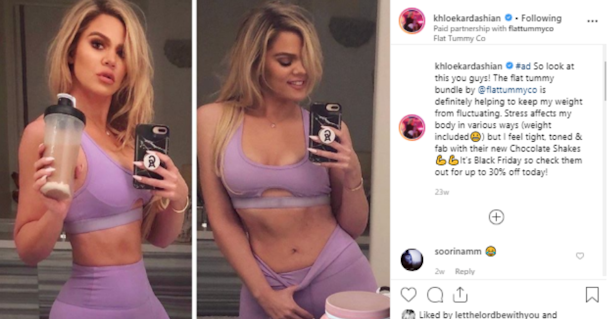Only 4% of people trust what influencers say online
Most global internet users lack confidence in what they see and read online, with only 8% believing that the bulk of information shared on social media is true, dropping to 4% when it comes from influencers.

Even governments are seen as more trustworthy than most celebrity influencers or bloggers/vloggers
The figures come from media agency UM, which found just a tiny minority of internet users agreed that the 'three-quarters or more' of the insight they gleaned from platforms like Facebook and Instagram was correct.
On the same measurement, even governments were seen as more trustworthy than most celebrity influencers or bloggers/vloggers, with 12% of people globally saying information shared by governments was 'mostly truthful'.
However, people in the UK and US were more cynical, with these numbers falling to 8% and 6% in those regions respectively.
UM tracked more than 56,000 active internet users across 81 countries for its 10th 'Wave' study, evaluating trust in social media.
The global suspicion around influencers comes as consumers and regulators continue to ask questions about the opacity of brand-influencer deals and the veracity of creators' large followings.
In the UK, the government has tightened up the rules around declaring paid-for content online. The Advertising Standards Authority (ASA), meanwhile, also cautioned 'hundreds' of influencers and brands for breaking strict guidelines around paid for posts on the likes of Instagram over the past few years.
The FTC has taken similar action in the US to usher more transparency into the space.
When it comes to fake followers, brands including Unilever have put pressure on Instagram and Twitter to take “urgent action now to rebuild trust before it’s gone forever”. The social networks listened, purging fake followers from their sites using AI technology, but the effectiveness of the measures taken has been questioned.
Despite these efforts, and tools from platforms like Instagram that allow creators to better disclose deals, UM found that less than half (36%) of Brits specifically trust bloggers and vloggers opinions on products and services. Trust for these kinds of recommendations was slightly higher globally, at 42%.
Overall, just 44% of Brits and 47% of global consumers said the were influenced by opinions shared online, a drop from last year's UK figure of 46%, and globally tally of 54% in 2017.
Liz Haas, head of client Insight EMEA for UM said the research highlighted that headlines over the past two years have "made people more aware of issues surrounding credibility and transparency on the internet."
She pointed scandals like Cambridge Analytica as having had a "huge impact" on the extent to which people question what they see and hear online.
“Legislation like the EU’s GDPR is working towards rebuilding that trust, particularly regarding what is done with our personal data, but brands will also have a key role to play over the coming years," she added. "It’s clear that trust is fast becoming the currency of the new internet, and brands able to demonstrate that they’re transparent and responsible in the moments that matter are going to be best placed to succeed."
The study also painted a picture of changing attitudes from people towards their digital lives, with some starting to feel less tied to social media.
The percentage of respondents globally who said they ‘worried about missing out if they didn't visit their social networks’ dropped by 4% compared with the Wave 9 study in 2017, from 50% to 46% globally, and from 41% to 39% in the UK.
And when asked which platforms people worldwide would describe as a ‘great place for someone like me’, non-interactive sites Netflix and YouTube came first and second (with 28% and 27% agreeing, respectively), with Spotify third on 27%.
The ‘traditional’ interactive social platforms like Facebook, Twitter, Instagram and Snapchat all ranked outside the top five.

